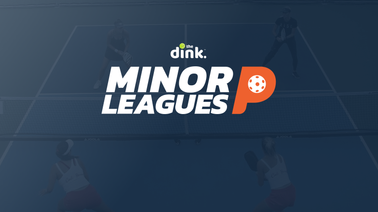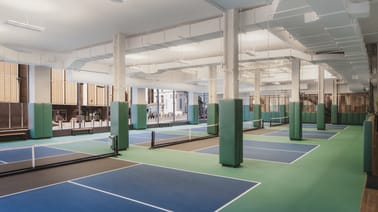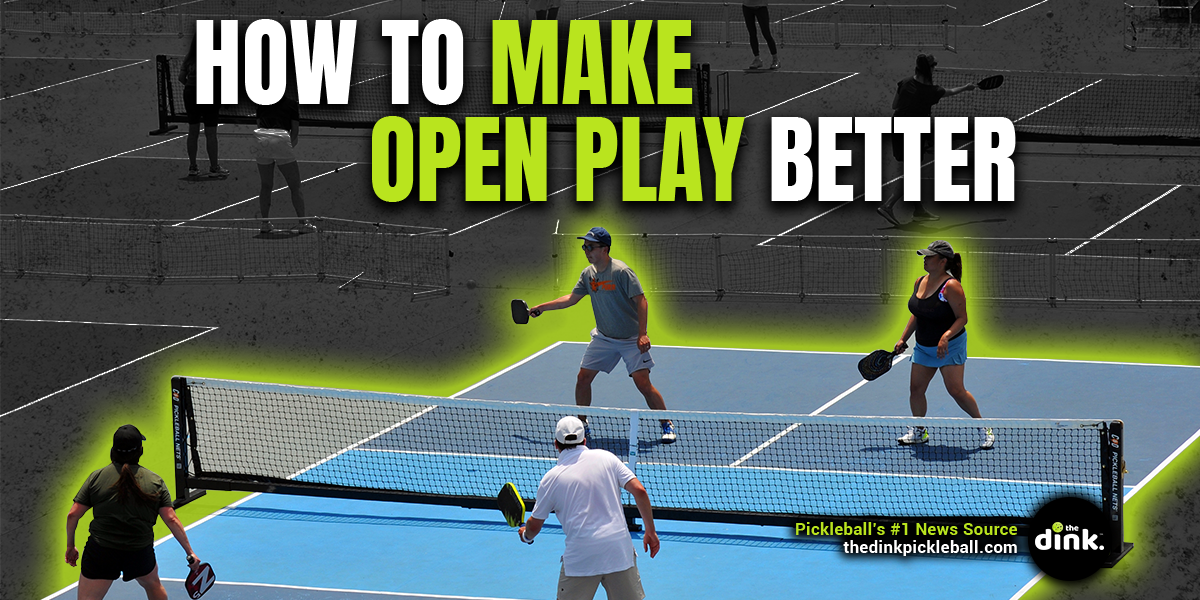
Suggestions For Making Your Open Play Pickleball Experience More Enjoyable
Go to a busy park in the morning, noon, or evening, and you'll likely see a stack of paddles lined up across a chain-link fence and people waiting patiently for their turn to hop onto a pickleball court.
This is open play pickleball.
While it holds a special place in most of our hearts, we also have a strong love/hate relationship with it.
We'll discusses some problems with open and recreational play and offer a handful of suggestions for fixing them.
What is open play?
Before we get too far, let's quickly define open play in pickleball. Some might call it rec play, and others paddle stack. But, essentially, it's all the same. It's a gathering of players who take turns getting out onto the pickleball courts to play games against one another.
There is almost always some queue or line system built into open play. Either players will stack their paddles (i.e., paddle stack) or line them up across a slotted rack for players to slide their paddles into.
For most open plays, this is about as far as the organization of it goes. And therein lies one of the problems.
The problems with open play
Several issues with open play can cause problems or rub some players the wrong way. These include (but are not limited to):
- Open play is disorganized
- Skill levels vary too greatly
- Theft happens from time to time
Let's look at each of these and consider how to fix them.

Open play is disorganized
"Organizing is a journey, not a destination." While this was likely not said by a pickleballer, it certainly applies to open play. No matter what type of open play you participate in, you will likely notice that sometimes everything flows easily, while other times, it's a mess.
Often, this inconsistency is due to no one being "in charge" of open play.
A few community members may try to help guide or direct it. But if those people aren't there or if others decide they won't listen, then there isn't much that can be done about it.
This lack of direction can lead to some players jumping the line or skipping it altogether, which could lead to confrontation.
Solution: Nominate group leaders
Every group has its regulars. Sometimes, these players will naturally fall into leadership roles. But it's unfair to expect one or two people to do all the heavy lifting.
Instead, if you have the ability to lead, consider doing so.
This doesn't mean you get to scream and yell at people or run things as you think they should be. Instead, it means it's your job to set an example, answer any questions, and politely remind people that following the group rules makes for a better experience for everyone.
Of course, if you're not interested in being a leader, do your part by supporting and encouraging those who are. Tell them they're doing a great job and if you have a concern, speak to them about it.
Skill levels vary too greatly
Ask most experienced pickleball players, and they tell you they don't mind occasionally playing against beginning or lower-level players. They understand that they, too, were once that player.
However, no one wants to spend their entire time playing games that aren't competitive.
This doesn't just apply to higher-skilled players who don't want to play against lower-skilled players; it also applies the other way.
In psychology, a theory called the "zone of proximal development (ZPD)" states that to learn effectively, we must be presented with tasks just outside our ability range.
This means that a 3.5-level player would compete best against someone slightly above or slightly below them.
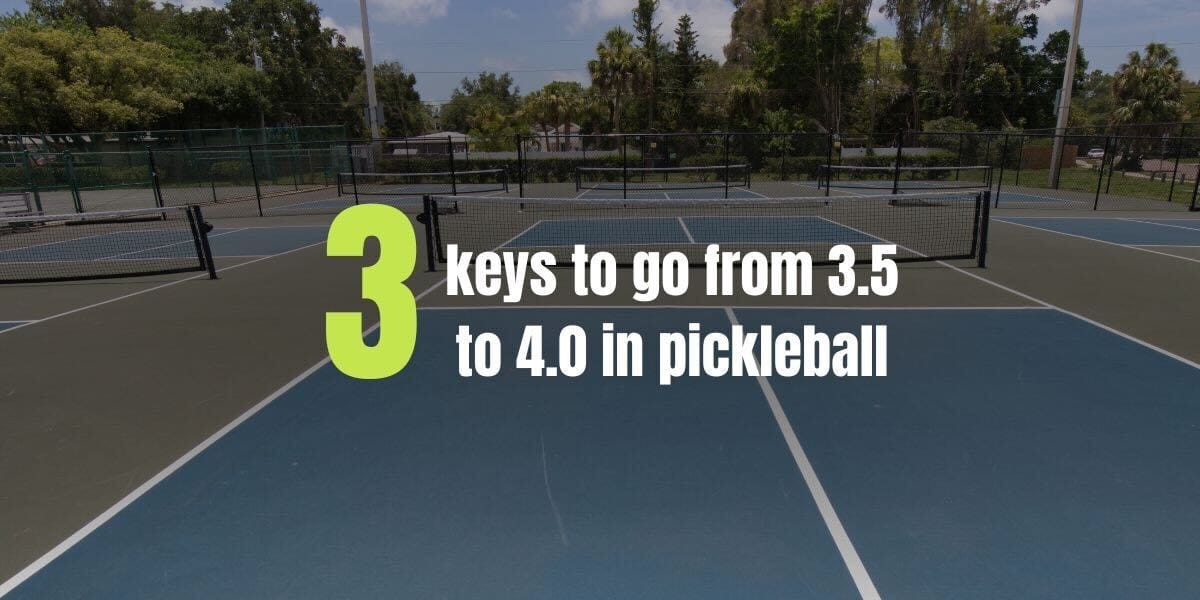
Otherwise, we end up in games that are either too challenging or not challenging enough.
However, since the very nature of open play is "open," anyone and everyone can participate at any time. Beginning players can end up playing against 4.0s, or 4.0s can end up against semi-pros.
Solution A: Dedicate one court to higher-level play
This can be tough to do, and some will naturally be against it, but it's worth mentioning because I've seen it work. If you have enough courts for your group, consider dedicating one to higher-level players.
What dictates a higher level?
That's a bit tricky. You could make players show their DUPR score or allow players to self-assess. Of course, some players will say they are better than they are, or they just want to play with the more advanced players, which could lead you back to your original problem of unbalanced play.
When this happens, nicely tell the person they're not quite ready for that court yet, but when they are, they're welcome to come back.
Will this cause issues? Yes.
But, if you stay consistent over time, players and the group will get on board.
If the group is too large and dedicating a whole court to just a handful of players is not feasible, then simply allow those players to stay in the rotation with each other instead of mixing with the larger group.
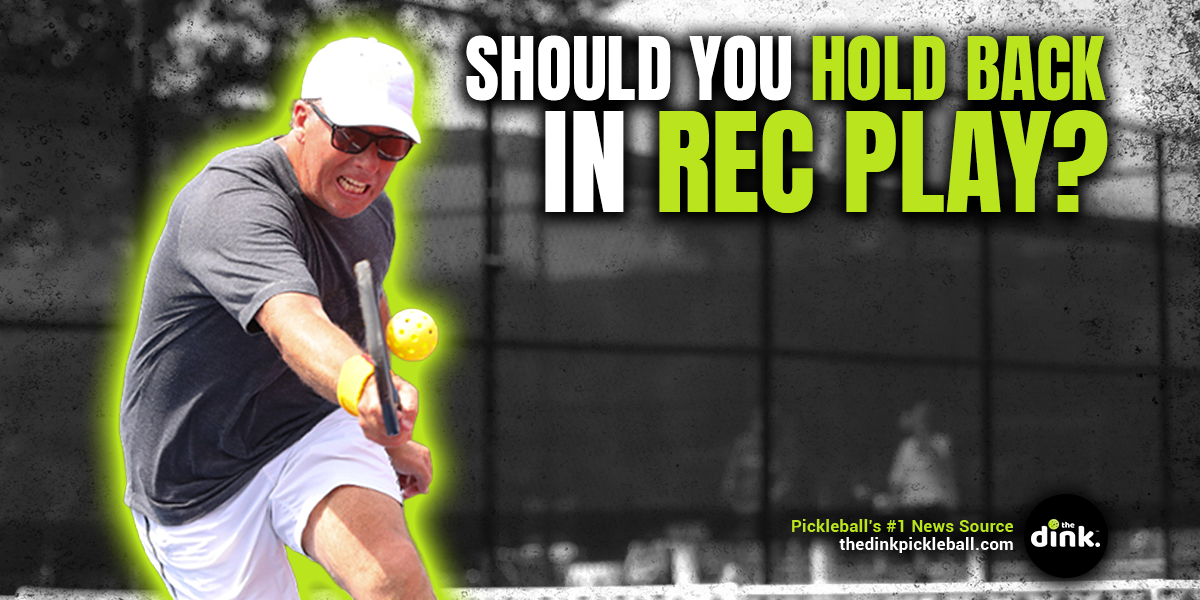
It might seem like preferential treatment, but if they are that much better than you, then playing against them is not going to do you any good anyway.
Solution B: Use baskets instead of a rack
Consider using baskets marked with various levels of play instead of a rack. For example, it can be effective to mark buckets with 3.0, 3.5, 4.0+ (self-assessed), and 4.0+ (DUPR). If you have a smaller group, simply "Beginner," "Intermediate," or "Advanced" will work.
When a bucket fills, those four take the court. This system allows some self-policing and helps you find your proximal zone of development. It also regulates those who self-assess vs. those who can "prove" they're a higher-level player.
Yes, you'll get players who put their paddle in the wrong bucket occasionally, but a simple nudge in the right direction will hopefully reduce that likelihood.
Solution C: Be encouraging but firm
There is a good and an awful way to tell someone they don't belong at a certain level. The bad way is to make faces, ignore them, or sigh heavily every time they make a mistake on the court.
The good way is to let them know that their play isn't quite there yet. Be encouraging yet firm.
Most players will respect the honesty and consistency of the message. Some might get mad, but as long as you're respectful about it, you've done your part for the group.
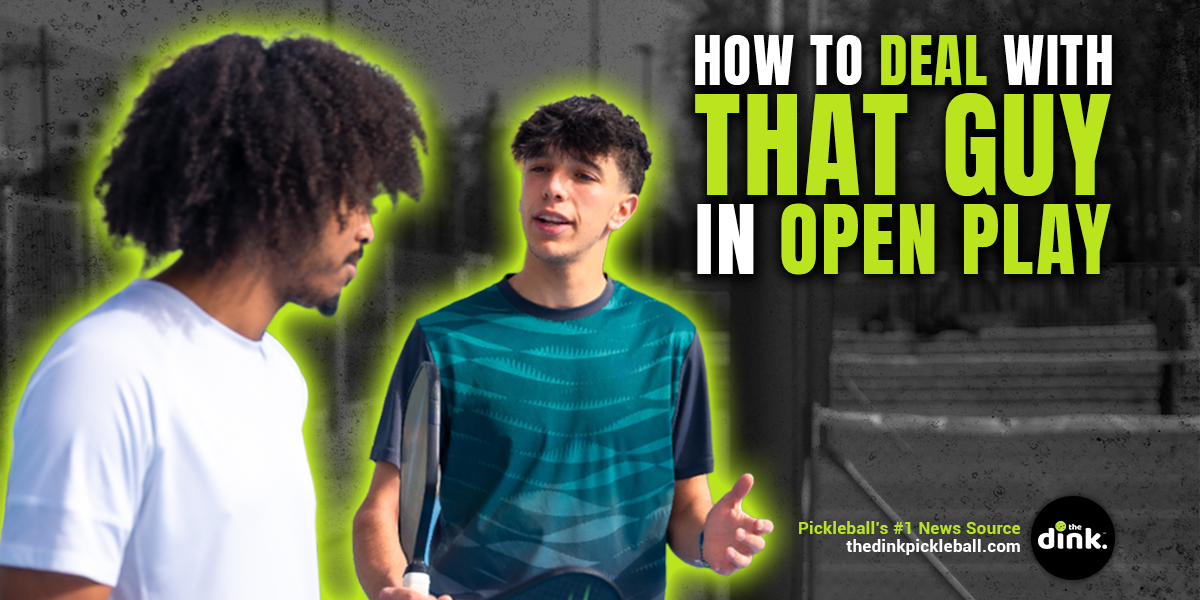
Theft happens from time to time
When in a large group of unregulated people, social rules are the only governing body. Unfortunately, not everyone follows those rules. When the opportunity to steal presents itself, some will take that opportunity.
Hopefully, for most, this isn't a common problem, but it does happen.
Solution: Designate an area for personal belongings
I know anyone reading this would not knowingly steal from a fellow pickleballer. However, we all know it happens.
While we can't fully stop someone from committing such a heinous act, there are some ways we can protect ourselves:
- Designate a specific area for everyone to keep their belongings. Discourage theft by putting your things in an open area in plain sight of the entire group.
- Never leave your bags or purses unzipped or unbuttoned.
- Write your name on your paddle – don't just put a colored grip on it.
- Take your wallet, keys, and phone with you to the court and set it out of bounds in a corner.
- If you see something, say something.
That last one is hard, but try to think what it would be like if you were the one whose belongings were stolen. How much would you appreciate someone speaking up?
A ton.
Be a good citizen and do it for others. In fact, maybe that's the solution for all of open play pickleball's problems.
Practice being a good pickleball citizen and hopefully others will follow your lead.




